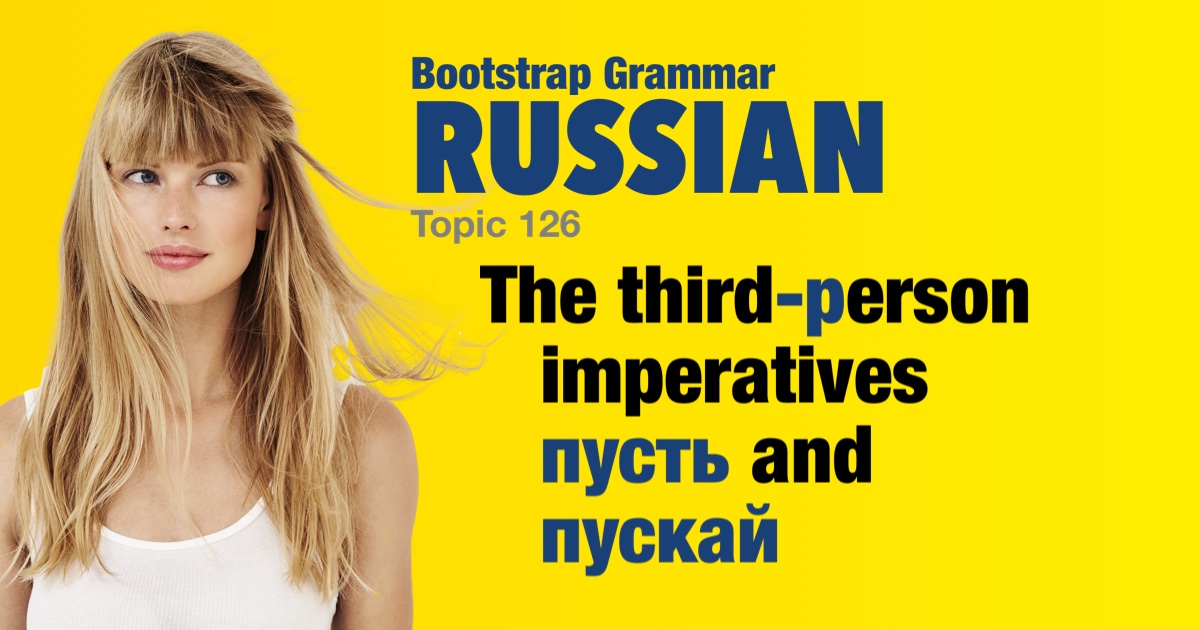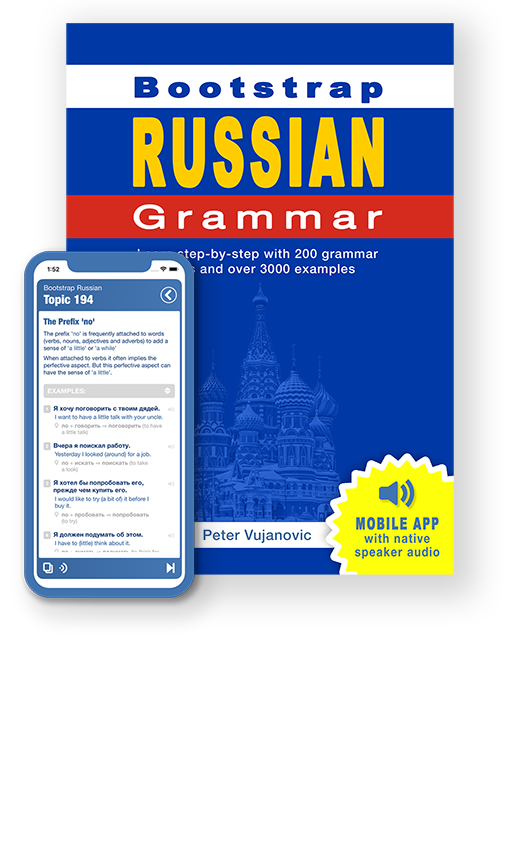Russian grammar - The third‐person imperatives пусть and пускай |
|||
|
|||
We have seen how to form the imperative in Russian to give instructions, commands and warning. These imperatives applied only to the 2nd person (singular and plural). In Russian we can use the particles пусть and пускай to form a 3rd person imperative. • пусть is used for invitation or authorisation. • пускай is used for actions that would nevertheless have been carried out. The difference between these two is often subtle and colloquially they are used interchangeably. Note that in these examples the pronouns are often omitted. This is very common in Russian where the conjugation (and context) often are sufficient to know the 'who'/'whom' of the sentence. |
| Examples: | |
|
Пусть он прочитает.
Let him read (to the end).
|
|
|
Пусть читает, что хочет!
Let (him) read what (he) wants.
|
|
|
Пусть не думает, что я забыл о ней!
Don't let (her) think that I (male) have forgotten about her.
|
|
|
Пускай он поест.
Let him eat/finish eating.
|
|
|
Пусть она всё сначала проверит.
Let her check everything first.
|
|
|
Пускай играют, оставь их в покое.
Let (them) play, leave them in peace.
|
|
|
Пусть Х равен Y.
Let X equal Y.
|
|
|
Пусть Олег приготовит обед.
Let Oleg cook lunch.
|
|
|
Пусть Нина напишет письмо.
Let Nina write a letter.
|
|
|
Не мешай, пускай он читает.
Don’t bother (him), let him read.
|
|
|
Пусть думает что хочет.
Let (him/her) think what (he/she) wants.
|
|
|
Пусть думают что хотят.
Let them think what they want.
|
|
|
Оксана меня больше не любит, ну и пусть!
Oksana doesn't love me anymore, but never mind!
|
|
|
Пускай, это не моё дело.
Whatever, it is not my business.
|
|
|
Пускай знает, что я в порядке.
Let (him/her) know that I am fine.
|
|
 |
|



 c
c